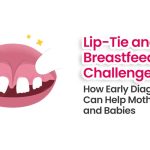Breastfeeding your newborn is a learning process for both mom and baby. For example, you need to learn how to breastfeed without nipple confusion, how often and when to feed your newborn, what formula alternatives are safe for your infant, how best to position yourself during breastfeeding, and much more.
During the first few days of life, most babies need to be fed approximately every 2-3 hours. By the end of the first week, your newborn will probably be able to go 4-6 hours between feedings. Of course, this varies from baby to baby.
In this article, we will discuss how to breastfeed your infant in the first 2 weeks of a life and how often you can feed them. So, let’s get started.
Preparing to breastfeed before the birth
Breastfeeding isn’t only for teething. Some parents choose to breastfeed their children because it is the finest first food for their newborns.
The US Institute of Medicine’s previous recommendation that children be exclusively breastfed for the first six months has come under fire by critics, who claim it is outdated. The World Health Organization (WHO) similarly advises against giving babies any food or drink other than breast milk unless medically advised.
Benefits of Breastfeeding
First off, there are many physical, emotional, and intellectual benefits associated with breastfeeding an infant. (This article focuses on breast milk for newborns, not breast milk for older babies.) For example:
- Breastfed babies tend to get sick less often than formula-fed infants. One study showed that mothers exclusively breastfeeding their babies had fewer fevers, diarrhea, coughs, and colds during the first 6 months of life than those whose babies were formula-fed.
- Breastfeeding also decreases the risk of ear infections by more than 80%.
- Four months after birth, breastfed babies are less likely to develop asthma and allergies.
- Breastfed babies have lower rates of obesity and diabetes as they grow older.
- Formula-fed babies are more likely to develop gastrointestinal problems like constipation and diarrhea.
- Breast Milk is easier for a baby to digest than formula.
- Breastfed babies have a decreased risk of developing sudden infant death syndrome (SIDS).
- Mothers who breastfeed have a decreased risk of ovarian and breast cancer.
- Breastfeeding is economical and environmentally friendly – it requires no packaging, shipping, or preparation.
There are many other reasons to breastfeed your newborn. The benefits of breastfeeding are too many to list here. But, we can say with certainty that breastfeeding is one of the best things you can do for your infant – both physically and emotionally.
How to Breastfeed in the First 2 Weeks of Life?
Now that we have established some of the benefits of breastfeeding, let’s discuss how to do it in the first 2 weeks of a newborn’s life.
The first few days after childbirth are typically the most difficult time for breastfeeding. This is because your milk supply has not yet established itself. In the first few days, your baby will nurse mostly for comfort and receive colostrum – the nutrient-rich early milk produced in the first few days after giving birth. Colostrum is low in volume but high in fat and protein. It also contains antibodies that help protect your baby from infection.
Some women feel overwhelmed and unsure about breastfeeding their newborn in the first few days after giving birth. If this is you, don’t worry – we are here to help.
Below are some tips for breastfeeding during the first 2 weeks of life:
Ask your doctor for help
If you feel overwhelmed or have any questions about breastfeeding, be sure to ask your doctor or midwife for help. They will be able to provide you with guidance and support.
Get comfortable
Breastfeeding in the first few days can be difficult, so it is important to get comfortable. Try to find a comfortable position for both you and your baby. Some good positions to try are the cradle hold, the football hold, and the side-lying position.
Relax
It is important to relax when breastfeeding in the early days. This will help make it easier for your baby to latch on. Try to take a few deep breaths and relax your muscles.
Use a nursing pillow
A nursing pillow can help you get into a comfortable position and support your baby.
Use a breast shield
If your nipples are sore after childbirth, you may want to use a breast shield. This is a plastic shield that fits over your nipple and helps to protect it from friction.
Drink plenty of fluids
It is important to drink plenty of fluids when breastfeeding. This will help keep your milk supply up and will also help to keep you hydrated.
Eat a healthy diet
A healthy diet is important when breastfeeding. Eating nutrient-rich foods will help to ensure that your milk is rich in nutrients.
Get plenty of rest
Getting enough rest is important when breastfeeding. This will help keep you energized and help you cope with parenthood demands.
Limitations of Breastfeeding
Although breastfeeding is the best source of nutrition for a newborn, it does have some limitations.
Breast Milk may not provide enough nutrients for a preterm baby
If your baby is born prematurely, they may need to be supplemented with formula or other types of milk until they can breastfeed.
Breastfeeding may not be possible for some mothers
Some mothers may not breastfeed due to a low milk supply or other health problems.
Breastfeeding can be time consuming
Breastfeeding can take a lot of time, especially in the early weeks. It is important to set aside enough time to breastfeed your baby.
Breastfeeding may cause sore nipples
Sore nipples are a common complaint among breastfeeding mothers. This can be caused by improper latch-on or bacteria transferred from the baby’s mouth to the mother’s nipple.
Breastfeeding can be expensive
Breastfeeding can be expensive, especially if you need to purchase a breast pump or special nursing bras and pads.
Breastfeeding may not be suitable for all babies
Some babies may not breastfeed due to health problems or low birth weight.
How often should I feed my baby?
The frequency of feedings will vary from baby to baby. Some babies may need to be fed every few hours, while others may only need to be fed once or twice a day. It is important to listen to your baby and feed them when hungry.
It is important to remember that breastfeeding is a learning process for both mothers and babies. Some babies may take a little while to get the hang of it, but with patience and practice, most babies will be able to breastfeed successfully.
Got a breastfeeding question?
If you still have questions or complications while breastfeeding your baby, visit the MyPedia clinic in Dubai. We have a team of certified lactation consultants who can help you with any issue while breastfeeding.
Get in touch with our lactation consultants now!




